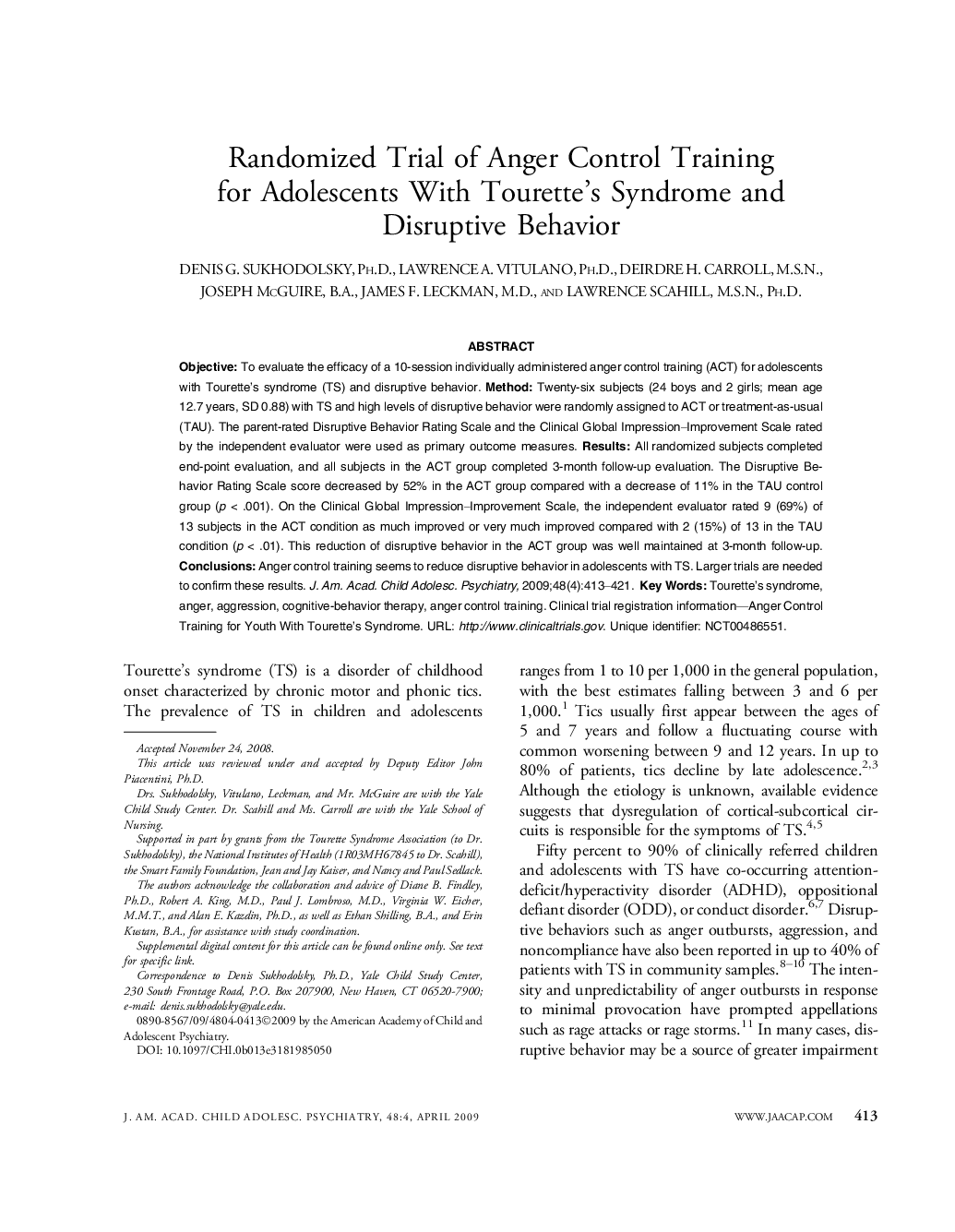| Article ID | Journal | Published Year | Pages | File Type |
|---|---|---|---|---|
| 325899 | Journal of the American Academy of Child & Adolescent Psychiatry | 2009 | 9 Pages |
ObjectiveTo evaluate the efficacy of a 10-session individually administered anger control training (ACT) for adolescents with Tourette's syndrome (TS) and disruptive behavior.MethodTwenty-six subjects (24 boys and 2 girls; mean age 12.7 years, SD 0.88) with TS and high levels of disruptive behavior were randomly assigned to ACT or treatment-as-usual (TAU). The parent-rated Disruptive Behavior Rating Scale and the Clinical Global Impression—Improvement Scale rated by the independent evaluator were used as primary outcome measures.ResultsAll randomized subjects completed end-point evaluation, and all subjects in the ACT group completed 3-month follow-up evaluation. The Disruptive Behavior Rating Scale score decreased by 52% in the ACT group compared with a decrease of 11% in the TAU control group (p < .001). On the Clinical Global Impression—Improvement Scale, the independent evaluator rated 9 (69%) of 13 subjects in the ACT condition as much improved or very much improved compared with 2 (15%) of 13 in the TAU condition (p < .01). This reduction of disruptive behavior in the ACT group was well maintained at 3-month follow-up.ConclusionsAnger control training seems to reduce disruptive behavior in adolescents with TS. Larger trials are needed to confirm these results.
